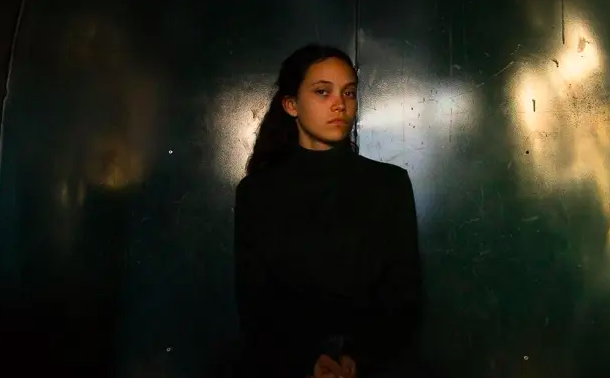Fernando Guzzoni may be contending for an Academy Award…
Chile has submitted the 39-year-old film director and scriptwriter’s Blanquita as its official entry for the Best International Film race at the Oscars.
 Guzzoni’s film explores a real-life child prostitution scandal that rocked the country in the early 2000s.
Guzzoni’s film explores a real-life child prostitution scandal that rocked the country in the early 2000s.
The film was chosen as Chile’s official entry by members of the Chilean Film Academy, in its third selection since its creation in 2018.
“Once again we are witnessing both the quality and diversity of our cinema, as well as the criteria and commitment of our partners: 70% of them voted in this process, the most participatory since we as an Academy have been in charge of choosing the film that represents Chile at the Oscars”, said the body’s executive director Josefina Undurraga.
 Blanquita world premiered in the Horizons section of the Venice Film Festival this year, winning the best screenplay prize for Guzzoni.
Blanquita world premiered in the Horizons section of the Venice Film Festival this year, winning the best screenplay prize for Guzzoni.
Big screen debutant Laura López stars as an 18-year-old resident of a foster home, who is a key witness in a trial against powerful politicians and businessmen implicated in a child sex scandal. As questions are asked, her role in the scandal becomes unclear.
Award-winning veteran actor Alejandro Goic co-stars as a priest who runs the home where the young woman lives. Other cast members include Amparo Noguera, Marcelo Alonso and Daniela Ramirez.
The feature is inspired by the real-life early 2000s Spiniak Case involving a paedophilia ring run by an entrepreneur and sports club owner, which provided services to a number of high-placed politicians and businessmen.
The case divided Chile as it went through the courts, with doubts being cast on the testimony of key witness who was caught up in the ring as a minor and accused two senators of abusing her.
Guzzoni spent a year investigating the case in-depth before writing his screenplay.
“I am very honored that Blanquita is Chile’s representative at the Oscars and grateful for the support of all my colleagues at the Film Academy,” said Guzzoni.
“The film puts forward in a thriller key an urgent issue about impunity and structural injustice in our country, therefore, it combines audience vocation and a story with high social sensitivity,” he continued.
“We believe that the film being awarded in Venice, the great reception from critics and the support of our international partners and distributors will allow us to carry out a campaign that seeks to make Blanquita’s message visible and position the film in the best possible way.”
Blanquita is Guzzoni’s fourth feature after La Colorina, Carne de Perro and Jesús, about a troubled, teenager who turns to violence in search of thrills.
“Blanquita is a powerful and current movie, which should make an impression on the Academy members. I can’t wait for them to see it,” said New Europe CEO Naszewski.
Chile won the Oscar for best international film in 2018 with Sebastían Lelio’s A Fantastic Woman, while Pablo Larrain’s No was nominated for the 2012-13 race and Maite Alberdi’s The Mole Agent was nominated in the Best Documentary category last year.
The deadline for the Best International Film category closed on October 3, with around 85 titles being publicly declared so far. Last year, there were submissions from 93 countries.

